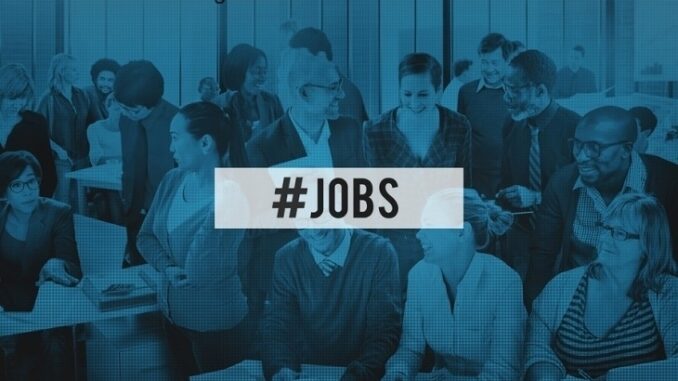
We are at a turning point for jobs in America. Technology coupled with events after the recession have changed the face of business, causing many millennials to shift their strategies when approaching their careers. Educational barriers and the increasing need for a bachelor’s degree, along with a greater emphasis on specialized degrees, means that the struggle to find a job with just a high-school diploma will only become more difficult. According to a report done by the Young Invincibles, a nonprofit which aims to expand economic opportunity for young people, millennials must adapt to these changes by honing their education, creativity, and technological literacy in order to survive in changing markets.
The report “The Future of Millennial Jobs” outlines how industries will change and how operations will be altered in the future. Before you make a decision to switch your major, or graduate with a certain degree, it’s a good idea to understand career prospects for the future. Here’s what you should know about the real future of millennial jobs.
Industries are shifting
Computer technology has now fully integrated into almost every level of business, so computer literacy is more important for everyone, regardless of what you are studying at school. This means that there is a major shift in the workforce in terms of things that need to be managed. According to the report, between 2010 and 2020, there will be 700,000 jobs added to the economy for computer-systems design and related industries. So while some jobs may become automated by technology, others will be invariably created to manage the new systems, making understanding computer technology a critical aspect in every industry. In addition of the need for computer literacy, the industries themselves are also changing. The largest growing sectors in the U.S. economy are leisure and hospitality, healthcare, and agriculture, while industries like finance, manufacturing, and construction are declining, and this is reflected in layoffs. From 2008-2011 Citigroup and Bank of America laid off 80,000 employees.
While there’s no way to determine the exact future of our job market, it’s a good idea to try to evaluate current trends and choose a job that will not only work for you, but will also work with our economy.
Working remote is the future
Telecommuting may be the wave of the future, and can certainly be lucrative to a millennial. Over 30 million Americans work from home, and another 63% will start by 2018. For the employer, it means lower overhead costs for things like office space, utilities, computer equipment, and supplies. This reduced cost usually translates to the employee, as 75% of those working from home make over $65,000 per year and save thousands more on transportation and other work related costs.
Confronting the Digital Divide and Skills Gap
A crucial aspect with a changing economy is examining what kind of impact it has on specific cultural and economic groups. Unfortunately, because of the nature of our evolving workplace, and the need for online access means low-income people of color are more likely to lag behind. In 2012, only 68% of African Americans and 64% of Hispanic Americans used the internet, compared to 80% Caucasian and 84% Asian internet usage. The fact that over 80% of all Fortune 500 companies perform recruitment and hiring exclusively online means that those who don’t use the world wide web are likely to have a harder time finding a job. The ability to have the internet may indeed be determined by how much money you make as subsidized programs for internet are currently sub-par at best. This is indicated in the statistics as well, as just over 50% of workers that make under $25,000 per year have internet access, compared to 95% of those who make over $75,000.
Education is also another critical aspect to attaining a job in the future. The popular saying that a bachelor’s degree is equivalent to a highschool degree two decades ago seems true. By 2020 around 65% of all job openings will require a post-secondary degree. Additionally, the need for specialized degrees and certificates as well as a post-bachelor education is becoming increasingly in need. Again, with the increased need of an educational background comes the social inequities that exist in our society. African Americans from the ages of 25-34 are twice as likely to have dropped out of highschool. In order to balance our workforce and promote diversity, we need to fix the crumbling education system in our country.
It’s clear that we are progressing into a positive future. Technology is making our jobs easier, and allowing more people to work on meaningful things like strategy, rather than menial tasks. With this shift however, also comes a gap in our workforce that reflects racial, gender, and economic inequities in our society. In order for our workplace to better reflect the great diversity that exists in our major cities, we need to ensure that the younger generation has access to the things that will be critical for success like access to a post-secondary education and the internet. While initiatives to fix a lack of diversity in the workplace are needed, the best way to advance diversity and thus productivity is to start at the root of the problem. The real future of millennial jobs is a bright one for those who have had access to a good education and computer technology, but is a frightening prospect for those who do not.
